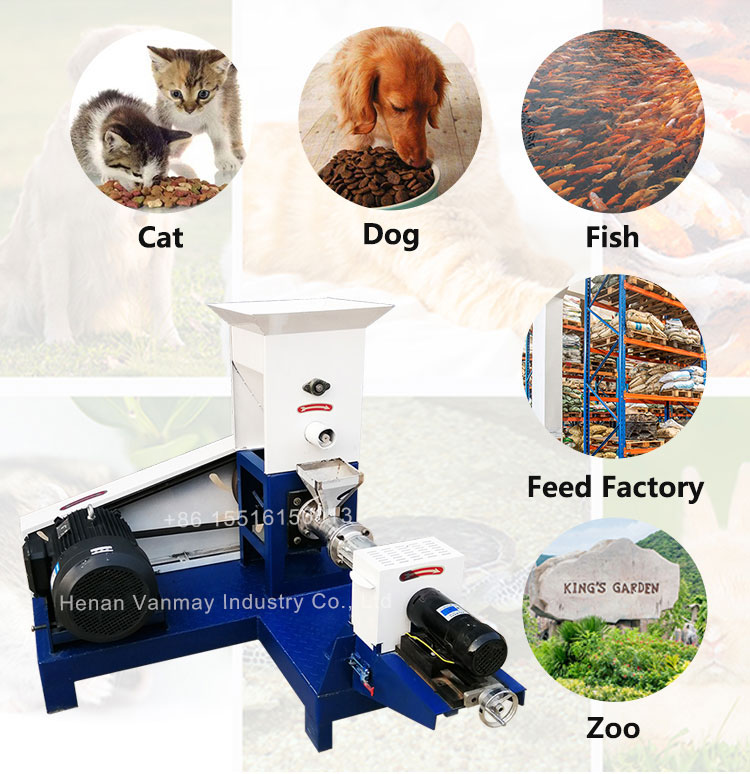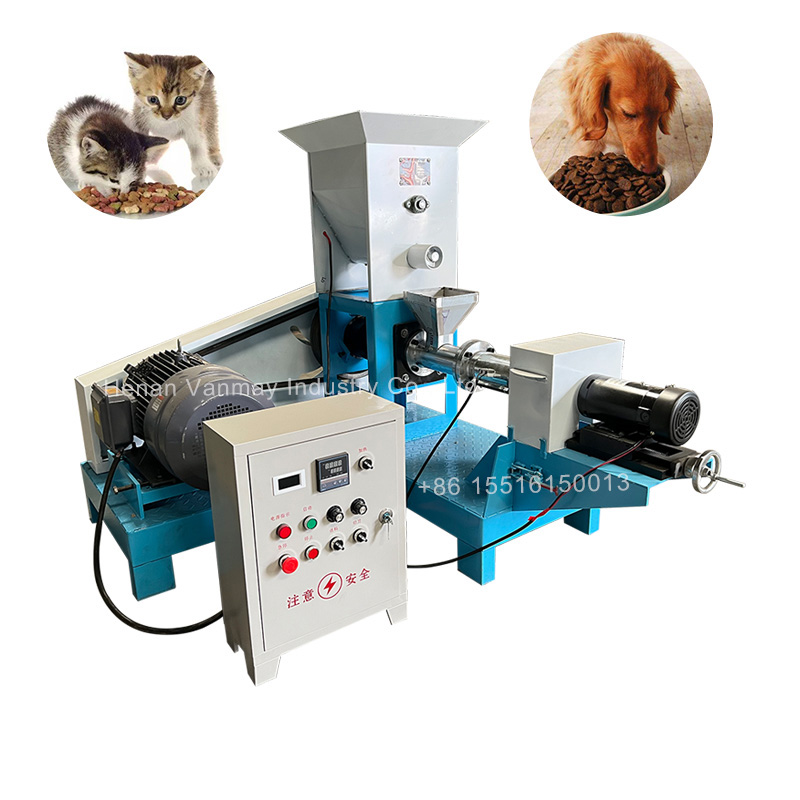What Materials Could the Drum Mixer Blend ?
287Drum mixer can mix a wide range of materials, mainly including the following categories: ,
View detailsSearch the whole station
In the rapidly growing aquaculture industry, providing high-quality feed is essential for healthy fish growth and optimal production. A fish feed pellet machine offers a cost-effective and efficient solution for producing customized feed pellets tailored to your fish’s nutritional needs. Whether you’re a small-scale fish farmer or a large aquaculture operation, investing in a fish feed pellet machine can bring numerous advantages.

Buying commercial fish feed can be expensive, especially for large-scale operations. A pellet machine allows you to produce feed at a lower cost by using locally available ingredients such as fishmeal, soybean meal, corn, and wheat bran. This reduces dependency on pre-made feed and improves profitability.
Different fish species require varying nutrient compositions. With a pellet machine, you can adjust the formula to meet the specific protein, fat, and carbohydrate needs of tilapia, catfish, salmon, or shrimp. This ensures better growth rates and overall fish health.
Pelleted feed is easier for fish to digest compared to powdered or loose feed. The compact structure of pellets minimizes nutrient loss in water, reducing waste and keeping the water cleaner. This leads to better feed conversion ratios (FCR) and lower water pollution.
Pellets are more stable and less prone to spoilage than wet or loose feed. They have a longer shelf life, resist mold growth, and are easier to store and transport. This makes them ideal for bulk production and long-term use.
High-quality pellets ensure uniform nutrient distribution, preventing selective feeding (where fish pick only certain ingredients). Consistent pellet size and texture promote better consumption, leading to faster growth and improved immunity.
By producing your own feed, you reduce packaging waste and transportation emissions associated with commercial feed. Additionally, you can incorporate sustainable ingredients like insect protein or algae, supporting environmentally friendly aquaculture practices.
Modern pellet machines can produce floating, sinking, or slow-sinking pellets, catering to different feeding habits of fish. Some models also allow adjustments in pellet size, making them suitable for fingerlings, juveniles, and adult fish.
Lower feed costs, improved growth rates, and reduced waste contribute to higher profitability. Over time, the return on investment (ROI) from a fish feed pellet machine makes it a smart choice for aquaculture businesses.
A fish feed pellet machine is a valuable investment for any aquaculture operation, offering cost savings, better nutrition, and improved fish health. By producing high-quality feed on-site, farmers can enhance productivity while maintaining sustainability.

Drum mixer can mix a wide range of materials, mainly including the following categories: ,
View detailsIf you’re serious about self-sufficiency, animal health, or getting the most nutritional value from your grains, a hammer mill grain grinder is an indispensable tool. Moving beyond pre-processed feeds and flours unlocks a new level of control and...
View detailsFarming efficiency is key to maximizing productivity and profitability. One essential tool that can significantly enhance your farm operations is a chaff cutter machine. Whether you're managing livestock or producing animal feed, investing in a h...
View detailsIn today's world, where sustainability and cost-efficiency are more important than ever, finding smart solutions for heating and waste management is key. One powerful tool that addresses both is the wood pellet machine. Here’s why investing in on...
View detailsThis website uses cookies to improve your browsing experience. By continuing to use this site, you accept the use of our cookies. Data collected from this website is processed and stored in the United States.
HelloPlease log in